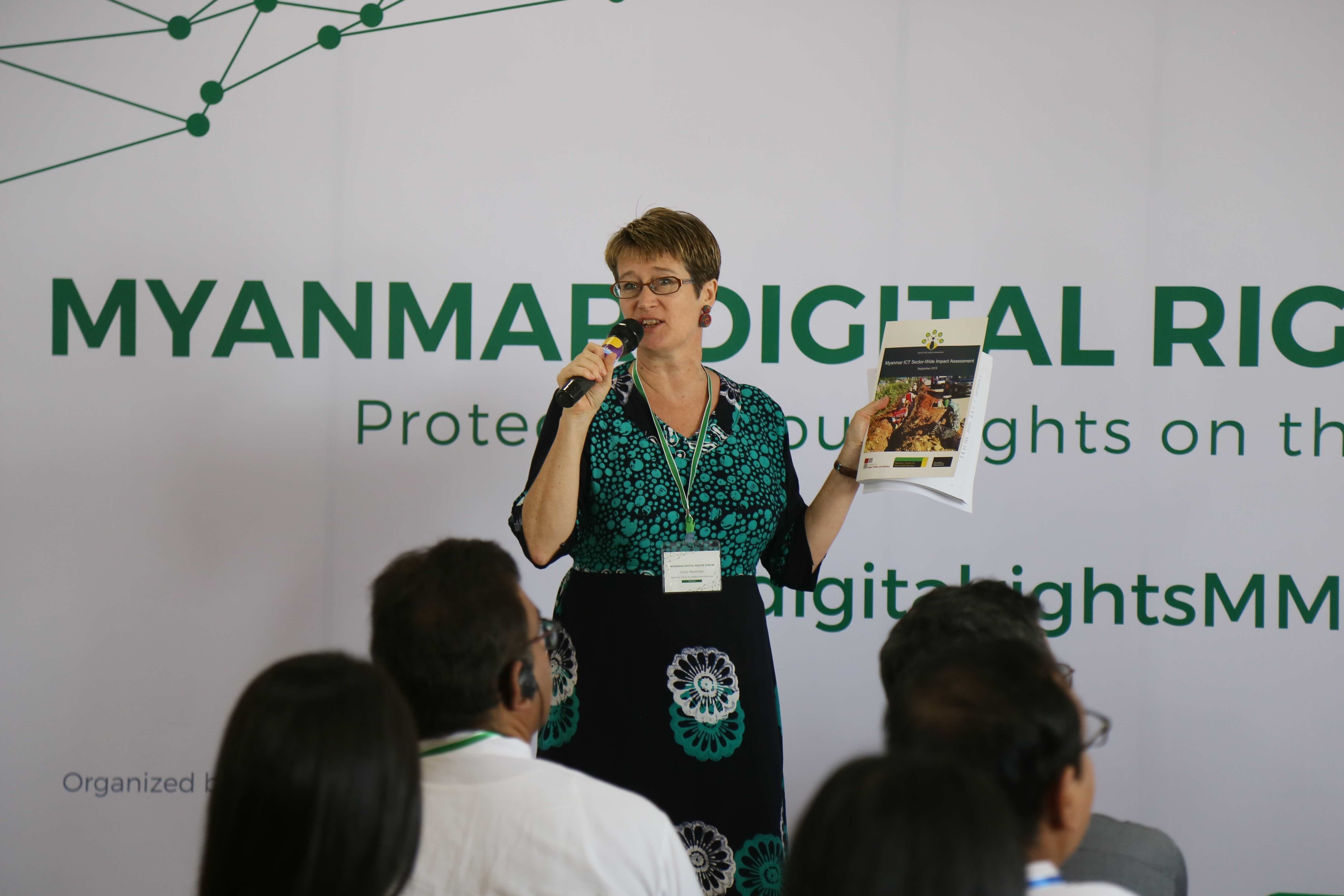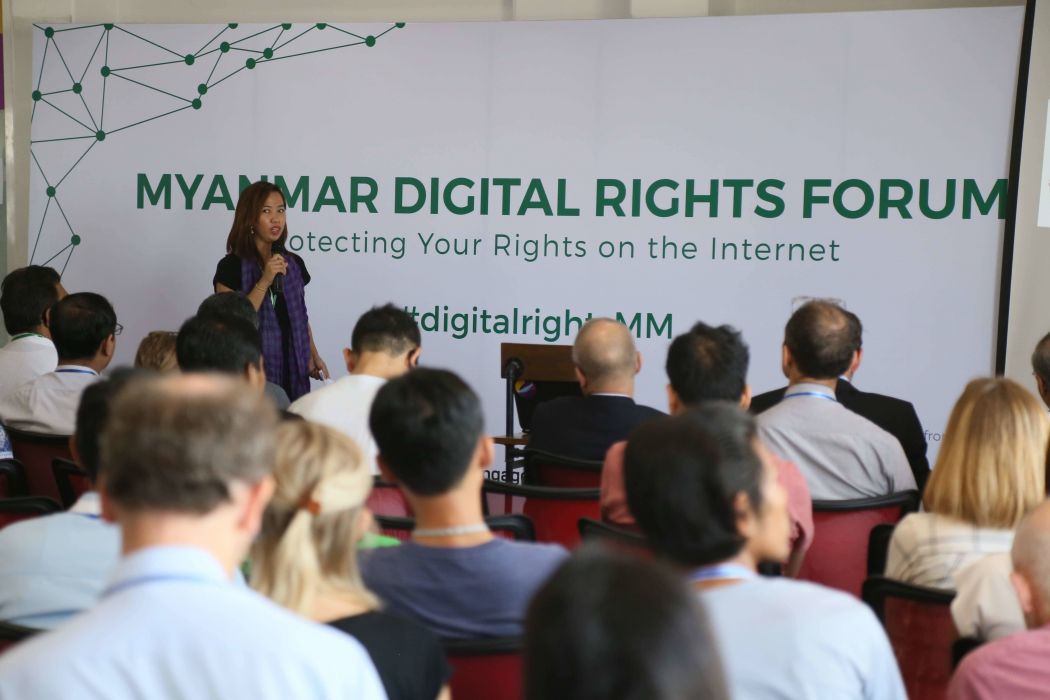More than 55 representatives from technology companies, government, media and civil society organizations gathered at the innovation lab Phandeeyar to participate in the Myanmar Digital Rights Forum this morning. The two-day event was organized to address critical digital rights challenges in Myanmar.
Over the last two years, Myanmar has experienced a connectivity revolution; tens of millions of people have hopped onto the web all at once. However, recent events have highlighted how vulnerable people in Myanmar are when communicating and sharing information online.
Daw Ei Myat Noe Khin, a Phandeeyar associate and co-organizer of the event, explained: “Myanmar’s laws and regulations were changed to enable millions of people to get connected. However, not nearly enough has been done to protect the rights of these users. Urgent legislative action is needed to ensure that the rights and freedoms that the Myanmar people now enjoy offline are also protected when they are using the internet.”
Rights groups and media organizations have noted the threats to freedom of speech posed by the arrest under Article 66(d) of Myanmar’s Telecommunications Law of journalists and ordinary citizens for Facebook posts.
Nay Phone Latt, the former political prisoner and free speech activist who now serves in the Yangon Region parliament, called for changes to Myanmar’s laws, which are now being used to sue people for as actions as little as leaving a comment on social media.
“Even though I am now an MP, my opinion on free speech has not changed,” he said.
He also called on Union-level lawmakers to attend similar forums and ultimately improve the laws relating to digital rights.

Yangon Region MP Nay Phone Latt discussed his confrontation with Myanmar’s censorship laws. Photo: Phandeeyar
However, Article 66(d) is only one of many issues that need to be addressed. According to speakers at the forum, other critical issues include information privacy, the right to information, online hate speech, cyberbullying, revenge porn and phishing scams.
Vicky Bowman, director of Myanmar Center for Responsible Business, recounted the story from a few years ago of an NGO leader who gave away $80,000 of his organization’s money when he was duped by a phishing scam online.
“Are Myanmar people aware of digital rights? I don’t think so. They’re excited about SIM cards and gadgets, but they’re probably not reading the terms and conditions.”
There is still a lot to worry about in the realm of digital rights in Myanmar, she said.
 Vicky Bowman addresses the forum. Photo: Phandeeyar
Vicky Bowman addresses the forum. Photo: Phandeeyar
In this challenging environment, the forum’s attendees are working to develop specific policy recommendations, strategies and campaigns to ensure digital rights to the people of Myanmar.
“The benefits of connectivity won’t be realized if people are scared to use the internet. The objective of the Myanmar Digital Rights Forum is to raise awareness about the importance of these issues and to develop concrete plans to address them,” said Daw Htaike Htaike Aung, executive director of Myanmar ICT for Development Organization (MIDO).
Some speakers offered the experiences of other countries as models for what Myanmar might be able to do to protect internet users. Sunil Abraham, the executive director of the Bangalore-based Center for Internet and Society, urged against thinking of companies and governments as monoliths. There are people in government, he said, who do have the rights of citizens in mind. He also advised digital rights campaigners to pursue change on all sides of the political spectrum, just as free-software activists found support in India’s communist and nationalist parties.
Ms Cheekay Cinco, a program manager for Engage Media, said: “This is not a Myanmar problem. Hyper-connectivity in the region has led to greater criminalization of online activities. Over the years, spaces in Southeast Asia have been created to talk about these issues. We can only spark development and change when these spaces continue to flourish and have participation from different sectors.”




